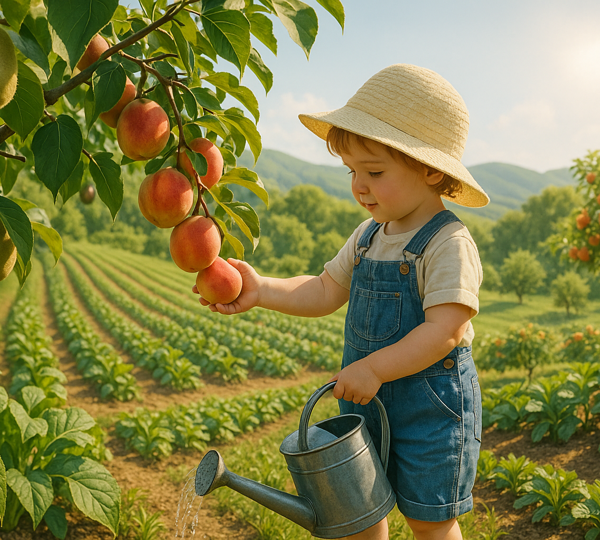In recent years, there has been a growing debate about the benefits of organic farming compared to traditional farming methods. Each approach has its supporters and opponents, whose arguments focus on environmental impact, food safety, and sustainability. Let's explore the main differences between these two farming methods.
Organic Farming: Sustainable Practices
Organic agriculture emphasizes the use of natural production inputs and techniquesin raising crops and livestock. This includes avoiding synthetic pesticides, fertilizers, and genetically modified organisms (GMOs). Instead, organic farmers use crop rotation, composting, and natural pest control methods to maintain soil health and fertility.
Conventional Farming: Synthetic Inputs
Conventional agriculture uses synthetic substances such as chemical fertilizers, pesticides, and herbicides to maximize yield. Although these methods can be very effective in controlling pests and weeds, they have raised concerns about their potential negative effects on human health and the environment.
Environmental Impact: Organic vs. Conventional
One of the most important advantages of organic agriculture is the focus on sustainable development and environmental protection. Organic practices promote soil health and biodiversity, reduce water pollution, and minimize the use of fossil fuels. In addition, organic agriculture often uses techniques such as agroforestry and cover cropping to help sequester carbon and mitigate climate change.
In contrast, traditional agricultural methods have been linked to environmental degradation, including soil erosion, water pollution, and loss of biodiversity. Heavy use of chemicals can harm beneficial insects, birds, and other wildlife, disrupt sensitive ecosystems, and weaken overall resilience.
Food Safety Concerns: Organic Offers Safer Options
In terms of food safety, organic farming is often considered to offer safer and healthier products. Organic farming regulations prohibit the use of synthetic pesticides and GMOs, which reduce pesticide residues in organic produce. In addition, organic standards require strict animal welfare practices, including accessto outdoor spaces and organic animal feed.
Productivity and Scalability Challenges
However, critics argue that organic agriculture produces lower yields than conventional methods, leading to higher prices and reduced availability of organic products. In addition, some question the scalability of organic agriculture, especially to meet the food needs of the world's growing population.
While organic products may be perceived as costly compared to conventional ones, the higher prices reflect the additional expenses incurred by organic farmers in implementing environmentally sustainable practices, obtaining organic certification, and navigating the complexities of organic production and supply chains. Despite the higher costs, we produce premium organic products for perceived health benefits, environmental sustainability, and ethical considerations.
In short, the debate between organic and conventional agriculture is complex and multifaceted. Although organic farming offers many environmental and health benefits, it also presents challenges in terms of productivity and scalability. Finally, the choice between the two farming methods depends on individual preferences, values, and priorities. As consumers, we have the right to support sustainable agricultural practices by making informed choices about the food we buy and consume.



